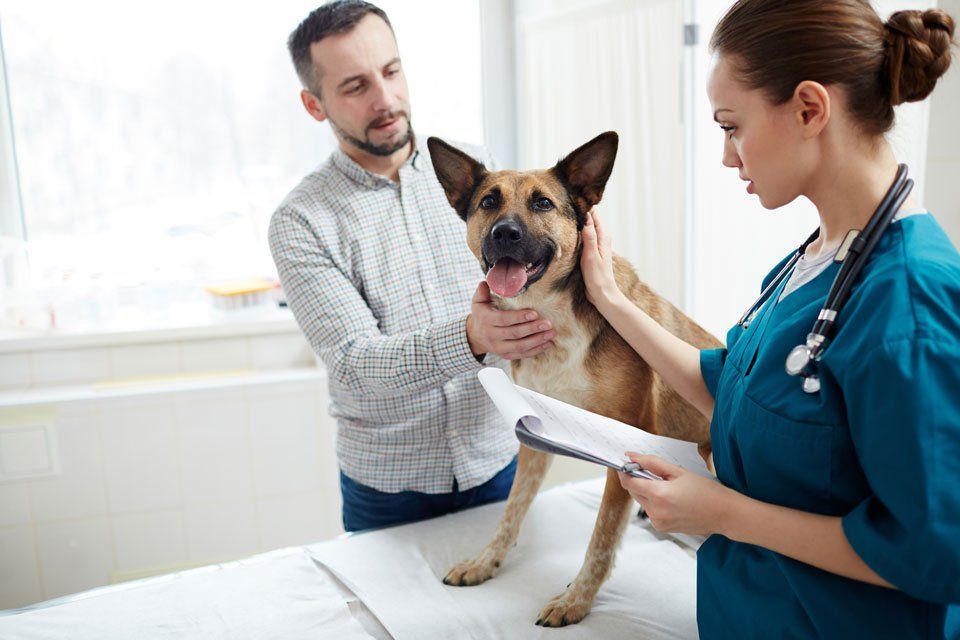Laser Therapy for Pets: An FAQ
8 December 2020

Pets and humans experience many similar kinds of physical challenges, from the chronic pain of degenerative joint conditions to the acute injuries sustained in accidents. Fortunately, pets can also benefit from some of the same treatment techniques that work on humans, including a non-invasive modality called laser therapy.
If your pet struggles with an acute or chronic condition, you'll want to learn more about the power of therapeutic laser treatment to ease symptoms and speed the body's natural healing processes. Take a look at some frequently asked questions (and their answers) regarding this safe, effective form of care.
Why Does a Therapeutic Laser Differ From a Surgical Laser?
Both therapeutic lasers and surgical lasers focus amplified light energy into a narrow, precise beam, which the veterinarian then uses to treat an animal. However, while the surgical laser cuts, vaporizes, and seals tissues, a therapeutic laser actually penetrates the skin's surface without doing any damage.
The key to these different effects lies in the power of the beam emitted by the laser device. A surgical laser operates at a relatively high power level, while a therapeutic laser operates at a lower level. For this reason, you may also hear it referred to as low-level laser therapy (LLLT) or cold laser therapy.
How Does a Therapeutic Laser Help Body Tissues?
As the therapeutic laser beam reaches beneath the skin to underlying tissues, its energy stimulates cellular structures called mitochondria. The mitochondria respond by producing more of a substance called ATP. The cells use this ATP as a fuel source to help them repair tissues more quickly and thoroughly.
The therapeutic laser beam also stimulates the circulation at the treatment site. This increase in blood flow helps to nourish damaged tissues. It can also reduce inflammation and pain.
What Conditions and Symptoms Can Benefit From Laser Therapy?
Pets with acute injuries such as bone fractures and wounds related to injury or surgery can benefit from its ability to accelerate the healing process while also enjoying relief from acute pain. Many chronic problems also respond to laser therapy, including arthritis, hip dysplasia, chronic soft tissue strain, infections, and nerve problems.
Pets who cannot safely use pain medication make prime candidates for therapeutic laser treatment. If your pet's age, current medication regimen, or underlying health issues rule out the use of analgesic drugs, laser therapy could provide the safe, gentle, drug-free pain management strategy your pet needs.
What Should You Expect From Your Pet's Laser Therapy Treatments?
Unlike surgery or certain other veterinary techniques, laser therapy requires no preparation such as administering local anesthetic or shaving the treatment site. Your pet simply sits or reclines quietly while the veterinarian operates the therapeutic laser directly above the tissues (hair and all) in need of care.
Pets do not feel any discomfort from laser therapy. In fact, your pet should find the whole process extremely relaxing, especially as pain starts to fade. Laser therapy can provide some degree of pain relief almost immediately. This relief should also eliminate any anxiety your pet might have felt over undergoing veterinary treatment.
A typical laser therapy session may take only a few minutes, depending on the specific condition and symptoms involved. However, this type of therapy usually requires multiple treatment sessions, at a rate of a few sessions per week, for optimal results. Chronic conditions will require more sessions than acute injury treatment.
Pet Medical Center of Vero Beach offers therapeutic laser treatment along with other helpful treatment modalities. If you believe that laser therapy might prove invaluable to your pet's comfort and function, contact our office
to schedule an appointment.
If left untreated, roundworms and hookworms can cause serious health problems for your pet. Read about the signs in this blog and how to take action.
Many pet owners overlook the importance of dental health in their pets. Read this blog to learn why dental health is so important for your animal companion.
Your beloved pets, whether our loyal canines or our independent felines, play an integral role in your life. Read on to learn how to manage their stress.
Dogs can suffer from a plethora of digestive issues. But how can you tell if your pup has any digestive issues? Discover some key signs to look out for.
A tick’s bite can spread deadly diseases to you and your pet. Learn about a few tick-borne conditions your pet may contract if they spend time outside.
Has your animal's hair changed? Discover what this might mean and if your best friend might need treatment for their potential problem.
Prepare your puppy for its first vet visit to avoid challenges during a medical examination. This post highlights five ways to help your puppy.
If your dog is pregnant, you might feel unprepared. Read this blog to learn everything you should know about canine pregnancy, labor, and delivery.
A surgery is an invasive procedure that requires preparation to ease your cat and ensure a smooth recovery. Discover tips to prepare your cat for surgery.
Just like humans, pets can face various health issues. Learn about the most common conditions that pets face and how to avoid and treat them.





